
Young People Launch Commissioner's 2012/13 Participation Awards for International Youth Day
Search on for public bodies in Northern Ireland to showcase how they involve young people.
NewsScroll down to find out more about this issue - including a summary for children and young people, background information including the relevant Children's Rights, how we are monitoring Government and our work in addressing the issue.
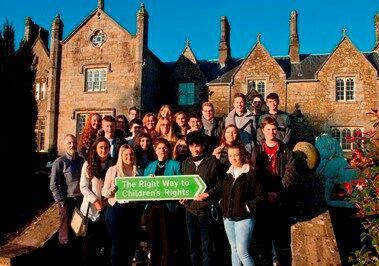
The United Nations Convention on the Rights of the Child (UNCRC) is clear that children and young people should have a say in decisions that affect you now, not just when you are an adult. This is important because you are expert on your own experiences and can help make better decisions.
Children and young people become more confident ad enthusiastic when you can see your thoughts and ideas being taken seriously and acted upon. Your self-esteem can improve, you can gain skills and you are more likely to actively participate in other areas of your life (for example, in your school, in your local community, or even in politics…).
More information for children and young people on Participation
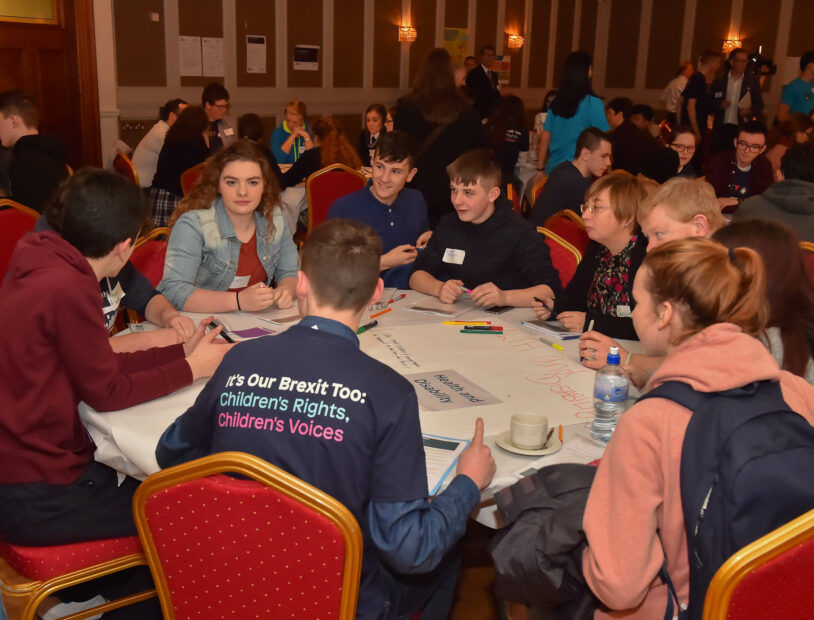
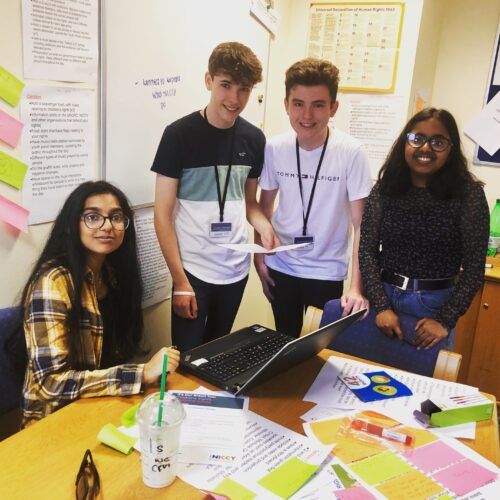 Participation is a process where children and young people are listened to and able to influence decisions about their lives which brings about change. This is important in all aspects of a child’s life at home, in their community and at school. Through active participation, young people are empowered to play a vital role in their own development as well as in that of their communities, helping them to learn vital life-skills, develop knowledge on human rights and citizenship and to promote positive civic action.
Participation is a process where children and young people are listened to and able to influence decisions about their lives which brings about change. This is important in all aspects of a child’s life at home, in their community and at school. Through active participation, young people are empowered to play a vital role in their own development as well as in that of their communities, helping them to learn vital life-skills, develop knowledge on human rights and citizenship and to promote positive civic action.
Legislators, government departments and statutory agencies have been increasingly acknowledging the UNCRC and the fact that, when listened to, children and young people can play a vital role in the planning and delivery of services. However, it is also recognised that there is still a distance to go. Engaging with children and young people in public consultation is still inconsistent and often an afterthought. Engagement with children and young people in the development of legislation, strategies and policies is sporadic, inconsistent and often relies on the individual rather that organisational practice.
The next Concluding Observations issued by the UN Committee to the UK Government is due by mid-2023. To inform this the UK Children’s Commissioners (Northern Ireland, England, Scotland and Wales) published the ‘List of Issues Prior to Reporting’ in 2020. The List of Issues identifies emerging trends and key issues, some of which draw on previous concluding observations while others reflect worrying trends caused by the UK’s departure from the European Union (Brexit) and the Covid-19 pandemic.
During the period of lockdown and societal restrictions, engagement between decision-makers and children and young people was conspicuous mainly by its general absence. Many young people shared that they feel that their voice has not been considered as important and that they have not had a chance to articulate their ideas and have them considered by decision makers. Young people tell us that they can make a significant contribution to restarting our society by sharing their ideas, concerns and solutions for adapting how we live with, and after coronavirus.
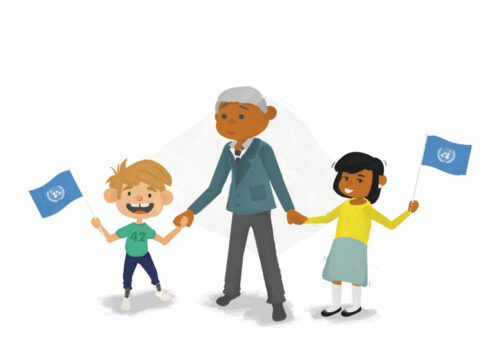 As set out in our legislation, all our work is underpinned by children’s rights, notably the UN Convention on the Rights of the Child, specifically here:
As set out in our legislation, all our work is underpinned by children’s rights, notably the UN Convention on the Rights of the Child, specifically here:
“We will establish a framework of participation structures, utilising existing fora, to ensure the voices of children and young people will be considered as this Strategy is implemented. Through the framework we will provide opportunities for all Children’s Authorities to engage meaningfully with children and young people prior to the introduction of relevant policies, programmes or strategies, at the co-design and consultation stages.”– 2020-2030 Children and Young People’s Strategy (CYPS)
It is recognised that there have been positive examples of engagement with children and young people including, for example, customised communications for young people using social channels such as Snapchat, TikTok, and Instagram stories, as well as using influencers to help communicate key messages.
In March 2022, The Infrastructure Minister hosted an Infrastructure Youth Assembly. This event provided a forum for young people to engage with the Department and make their voices heard to aid policy making on infrastructure issues.
The establishment of the NI Youth Assembly by the NI Assembly Commission is a tangible step forward. Young People under the age of 18 do not have the vote and therefore it is important their Assembly finds alternative ways to hear their views on the issues that are important to them and also for young people to have an avenue to challenge government and the work they do. The voice and experiences of children and young people are essential for good decision making for any legislative body.
The joint Department of Health/Department of Education Strategy for looked after children: ‘A Life Deserved’ recommends the establishment of formal mechanisms, including a biennial survey, to enable looked after children and care-experienced young people, those on the edges of care and those responsible for their care to be involved in policy, service and practice development on a co-design/co-production basis.
Co-design/co-production mechanisms will be part of the infrastructure established to implement this Strategy and it will have feedback loops so that children and young people and their carers, are informed of and understand the extent to which their contributions have influenced decision-making.
These mechanisms were acknowledged in the CYPS Delivery Plan April 2021 – March 2024.
There is no single definition of participation; it is both a process and also an outcome, which may differ in form and situations. However, taking into account the importance of incorporating active involvement of children and young people and hearing the voice of children and young people, NICCY defines participation of children and young people as:
‘Having a real and meaningful say and involvement in decisions that affect their lives’
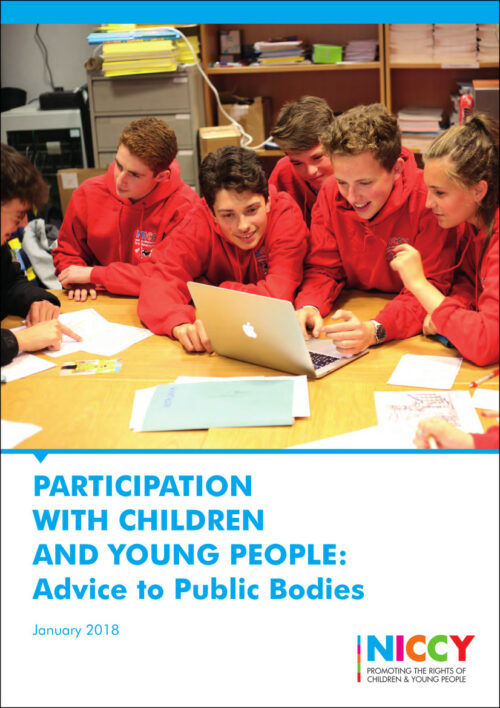
A key role for NICCY’s Participation Team is to provide practical advice on participating with children and young people and share good participative practice. We can do this in a structured format, for example, through our bi-annual Participation Forums or Children’s Champion meetings, or, on a more frequent basis through personal engagement such as telephone calls, Zoom/Teams meetings or face to face meetings. The starting point for much of this advice is found in our participation publication, ‘Participation with Children and Young People: advice to public bodies:
Participation and engagement with children and young people must be viewed as an essential and indeed positive opportunity to inform legislation, strategies, policies and services which ensure the promotion of the rights of all children and young people in Northern Ireland. This advice has been developed in partnership with the NICCY Youth Panel and is one way in which the Office can support public bodies to fulfil their UNCRC and S75 (of the NI Act, 1998) participation obligations in a consistent way.
Within a participation context, DE’s Participation in Decision Making’ initiative, although slow in progression, has the potential to make a real impact on how our statutory bodies engage and consult with children and young people. NICCY has been sitting on the initiative’s Project Board, providing advice throughout the project to date, especially with regard to the participation mechanism and participation principles; benchmarking participation; policy development including the use of Child Rights Impact Assessments; training for staff and evidencing the impact of participation.
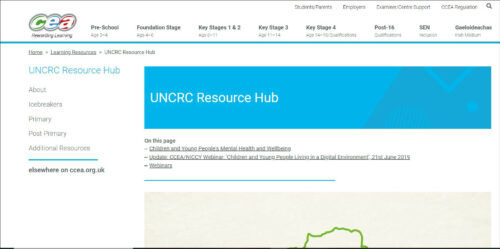 NICCY and the Council for the Curriculum, Examinations and Assessment (CCEA) have partnered to create a child rights animation and resource hub for teachers and pupils.
NICCY and the Council for the Curriculum, Examinations and Assessment (CCEA) have partnered to create a child rights animation and resource hub for teachers and pupils.
Its aim is to provide a range resources that will help to tell children and young people about their rights, as outlined in the United Nations Convention on the Rights of the Child (UNCRC). All these workshops and exercises are free to use, and more will be added as they become available

Search on for public bodies in Northern Ireland to showcase how they involve young people.
News
Commissioner for Children and Young People, Patricia Lewsley-Mooney, recently explained to Ards Borough Council the…
News
THE ASSEMBLY Commission was tonight (Wednesday) presented with the Gold Award in the Children’s Commissioner’s 2011…
News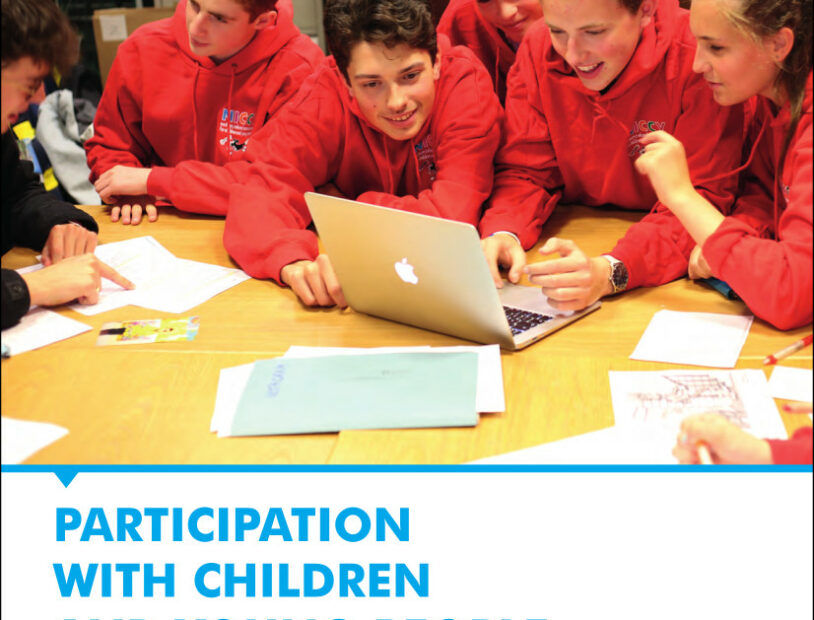
Participation with Children and Young People: advice to public bodies
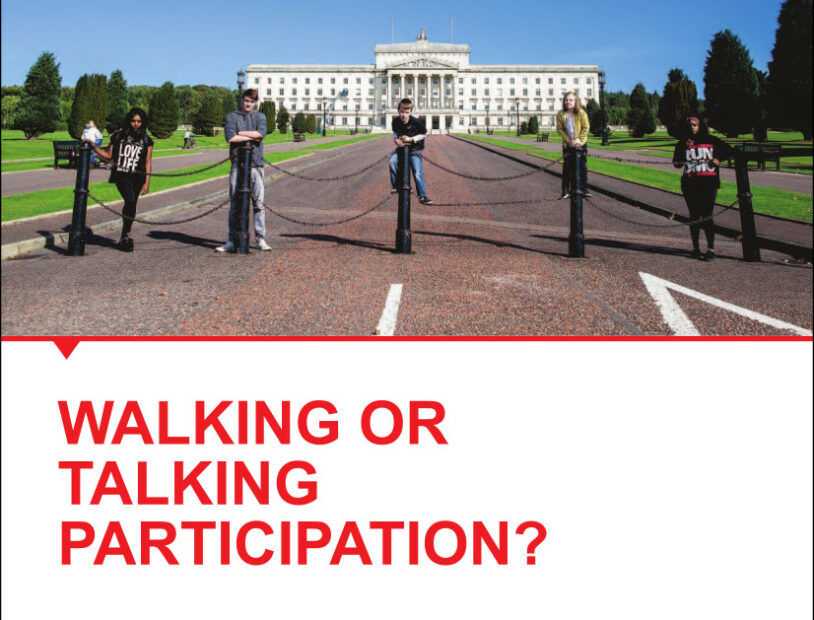
'Walking or Talking Participation - evidencing the impact of direct participation with children and young…